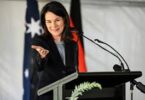F.P. Report
ISLAMABAD: Pakistan on Wednesday decided to recall its ambassador from Iran and suspend all high-level visits following the unprovoked violation of its airspace by Iran on Tuesday night.
Foreign Office spokesperson Mumtaz Zahra Baloch, in a televised press statement, said that Pakistan had also conveyed that the Iranian ambassador to Pakistan who was currently visiting Iran might not return for the time being.
“We have conveyed this message to the Iranian Government. We have also informed them that Pakistan has decided to recall its ambassador from Iran and that the Iranian Ambassador to Pakistan who is currently visiting Iran may not return for the time being,” the spokesperson remarked.
She said that the unprovoked and blatant breach of Pakistan’s sovereignty by Iran was a violation of international law and the purposes and principles of the Charter of the United Nations.
She said that the said the illegal act was completely unacceptable and had no justification whatsoever. “Pakistan reserves the right to respond to this illegal act. The responsibility for the consequences will lie squarely with Iran,” she said.
The spokesperson said that Pakistan had also decided to suspend all high-level visits which were ongoing or were planned between Pakistan and Iran in the coming days.
Islamabad has already communicated strong condemnation of Tehran’s move to the Iranian Charge d’affaires who was told that the consequences of such an unprovoked move lie squarely with Iran. Reiterating Pakistan’s stance on coordinated action against the scourge of terrorism, the spokesperson had underscored that such unilateral acts are not in conformity with good neighbourly relations and can seriously undermine bilateral trust and confidence.
Balochistan Information Minister Jan Achakzai Wednesday said the violation of Pakistani sovereignty by Tehran “damages relations” between Iran and Pakistan. “The enemy forces are trying to intervene externally in Pakistan, especially in Balochistan. The enemies will never succeed in their plans,” the minister said. The minister’s comments came during a presser in Quetta where he spoke in the wake of a drone and missile attack by Iran on ‘militant bases’ near its shared border with Pakistan late on Tuesday. The attack, however, resulted in the death of two innocent children and injured three girls.
Ackazai maintained that the Pakistani government and security agencies are fully prepared to establish peace and order in Balochistan. “We are capable of fully countering hostile forces everywhere.”
Meanwhile, former prime minister Shehbaz Sharif said he was “shocked at the Iranian breach of Pakistani sovereignty”. Taking to X, formerly Twitter, the Pakistan Muslim League-Nawaz president wrote: “This missile attack is against spirit of our friendship and principles of good neighbourliness, especially as it undermines the historic relationship between our two countries.”
The former premier insisted that conducting sincere dialogue and meaningful cooperation between Iran and Pakistan was the need of the hour. He also offered condolences to the families who lost their loved ones in the attack.
It should be noted that Iran offered no immediate official comment but its state-run Nour News agency said the attack destroyed the Pakistan headquarters of a terrorist group, which it has blacklisted after they carried out several attacks on Iranian soil in recent years.
The strike came after Iran launched missile attacks on “spy headquarters” and “terrorist” targets in Syria, and Iraq’s autonomous Kurdistan region. The Iranian strikes add to multiple crises across the Middle East, with Israel waging a war against Hamas in Gaza and pro-Palestinian Houthi rebels in Yemen attacking commercial vessels in the Red Sea.
Earlier in the day, reacting to the Iranian strikes caretaker Balochistan Information Minister Jan Achakzai said that the move has damaged the relations between the two countries. Terming Iran’s attack as “unacceptable” UK’s Lord Tariq said that his prayers are with those who have lost loved ones.
Expressing shock at the Iranian missile attack, former prime minister Shehbaz Sharif termed the development “against the spirit of friendship and principles of good neighbourliness” which undermines the historic relations between the two countries. Weighing in on Iran’s strikes, China has called upon Islamabad and Tehran to exercise “restraint” and avoid actions that would lead to an escalation of tension and work together to maintain peace and stability.
Former foreign secretary Aizaz Ahmad Chaudhry condemned Iranian air attacks in Balochistan, terming them a breach of the territorial integrity of Pakistan.
“Terrorism is a common threat to both countries, however, territorial integrity shouldn’t be breached,” the diplomat said, adding Iran shouldn’t get involved in such unilateral actions and that it is not a good option for its bid to make things better.
Aizaz recommended both countries stay calm and deal with all issues amicably instead of worsening ties. The ex-foreign secretary said Islamabad has given a “very tough” and “just” response to Tehran following the unprovoked and blatant breach of Pakistan’s sovereignty.
“Islamabad has also had complaints with Tehran. Indian spy Kulbhushan Jadhav entered Pakistani territory from Iran. Former Taliban top leader Mullah Akhtar Mansoor had also used the Iranian border and the transborder movement of BLA militants,” he continued. However, Islamabad had always shown patience on several events to settle things diplomatically instead of escalating matters with unilateral moves.
“Despite a tough response, the matters shouldn’t be escalated as we are not going to war.” He endorsed the foreign ministry’s statement over the Iranian air strikes, saying: “There are several channels between both countries to discuss issues but Iran chose not to use them. However, both sides should not escalate matters.”
The diplomat recommended: “Pakistan should seriously take up this matter diplomatically with Iran.
I would not suggest a tit-for-tat response from Pakistan’s side.” He stressed Pakistan constitute a National Security Council like other countries where civil-military leadership could make concrete decisions. He also suggested the Pakistani government critically review national security policy and diplomatic options to maintain ties with its regional neighbours.







